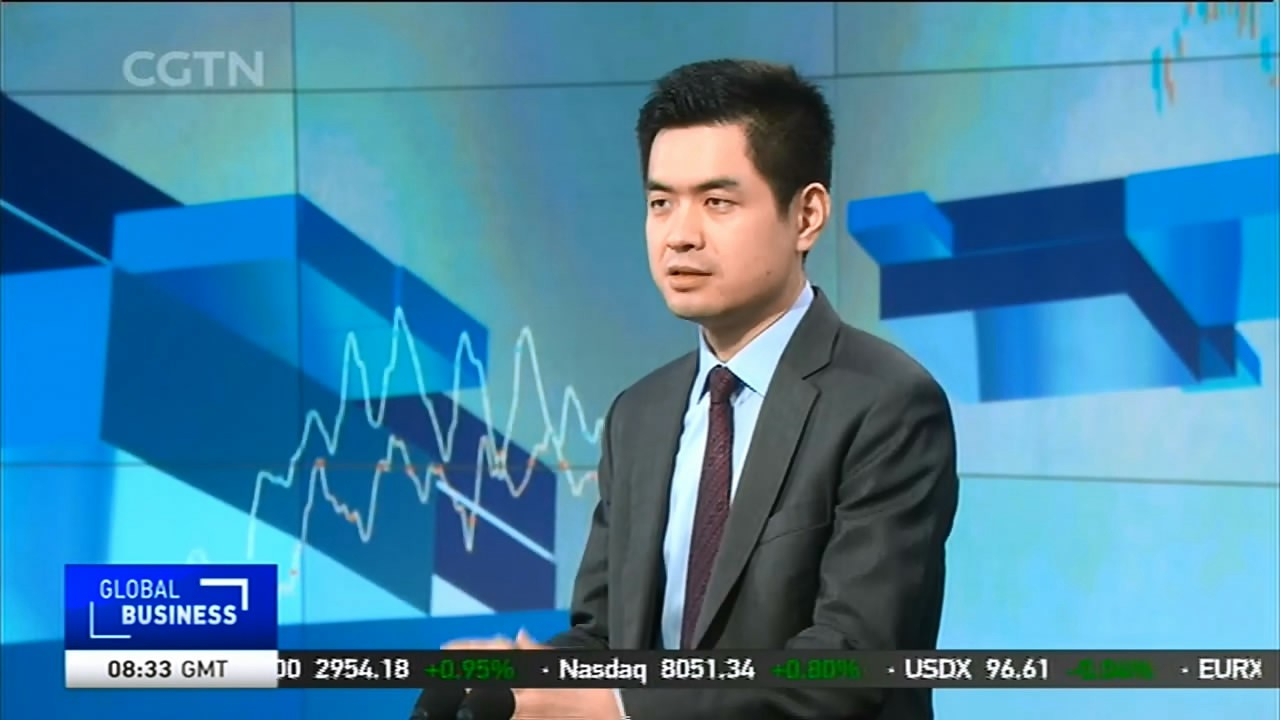

The upcoming G20 summit in Japan is described as "a fork in the road" for trade tensions with three possible paths – a deal, a pause or an escalation. Robin Xing, Morgan Stanley's chief China economist, considered “a pause” the most likely scenario, warning that any additional tariffs will be the single biggest threat to the global business cycle.
The economist stressed the necessity of preventing further escalation and regarded a pause as the most possible outcome. "That's very important and that's very likely we will have a pause posted during the G20 in Japan, like what happened in Argentina's G20 last year," Xing told CGTN.
"However, can the two sides work towards a deal and eventually remove all tariffs? That's still quite uncertain, given the key sticking points are still over there," Xing said.
He described the transmission channel from tariffs to global economy as "pervasive." If the U.S. imposes a new round of tariffs on 300-billion-U.S.-dollars' worth of Chinese imports, it will disrupt supply chains, weakening corporate capacities and eventually affecting consumer confidence.
"As a result, the global economy is stagnating, facing recession risk," Xing cautioned, further estimating that the global economy will have "an imminent recession within three quarters" if a new round of tariffs happens.

Robin Xing, Morgan Stanley's chief China economist. /CGTN Photo
Moreover, Xing noted that policy reaction might not "fully offset the potential risks from tariffs."
"We will see policy reaction from both sides. From the U.S. side, the Fed will cut interest rates while in China, we will see more fiscal stimulus. However, in either the U.S. or China, policy reaction won't be preemptive and they have a lack of effects," Xing explained.
The economist referred to Morgan Stanley's proprietary Business Conditions Index (MSBCI), which dropped 32 points to a level of 13 in June, the largest single-month decline on record and the lowest level since December 2008 during the financial crisis.
The decline showed a sharp deterioration in sentiment that was broad-based across sectors. And the dovish signal from the Fed meeting earlier this week possibly hinted a 50-basis-point rate cut in July, resulting in some weakness in the U.S. dollar, the economist forecast.
From China's side, Xing thought policy makers had taken additional easing measures in the past few weeks after the "re-escalation of trade tensions," noting that fiscal policy would be the key in the next stage of policy reaction.
"Thinking about the potential weakening in private confidence, which means the policy makers need to step up the public spending to boost confidence, they probably need to finance it via government deficit and issuing more government bonds and expanding the quota of government bond issuance in the middle of the year. It is quite rare, but is possible," Xing said.

Copyright © 2018 CGTN. Beijing ICP prepared NO.16065310-3
Copyright © 2018 CGTN. Beijing ICP prepared NO.16065310-3